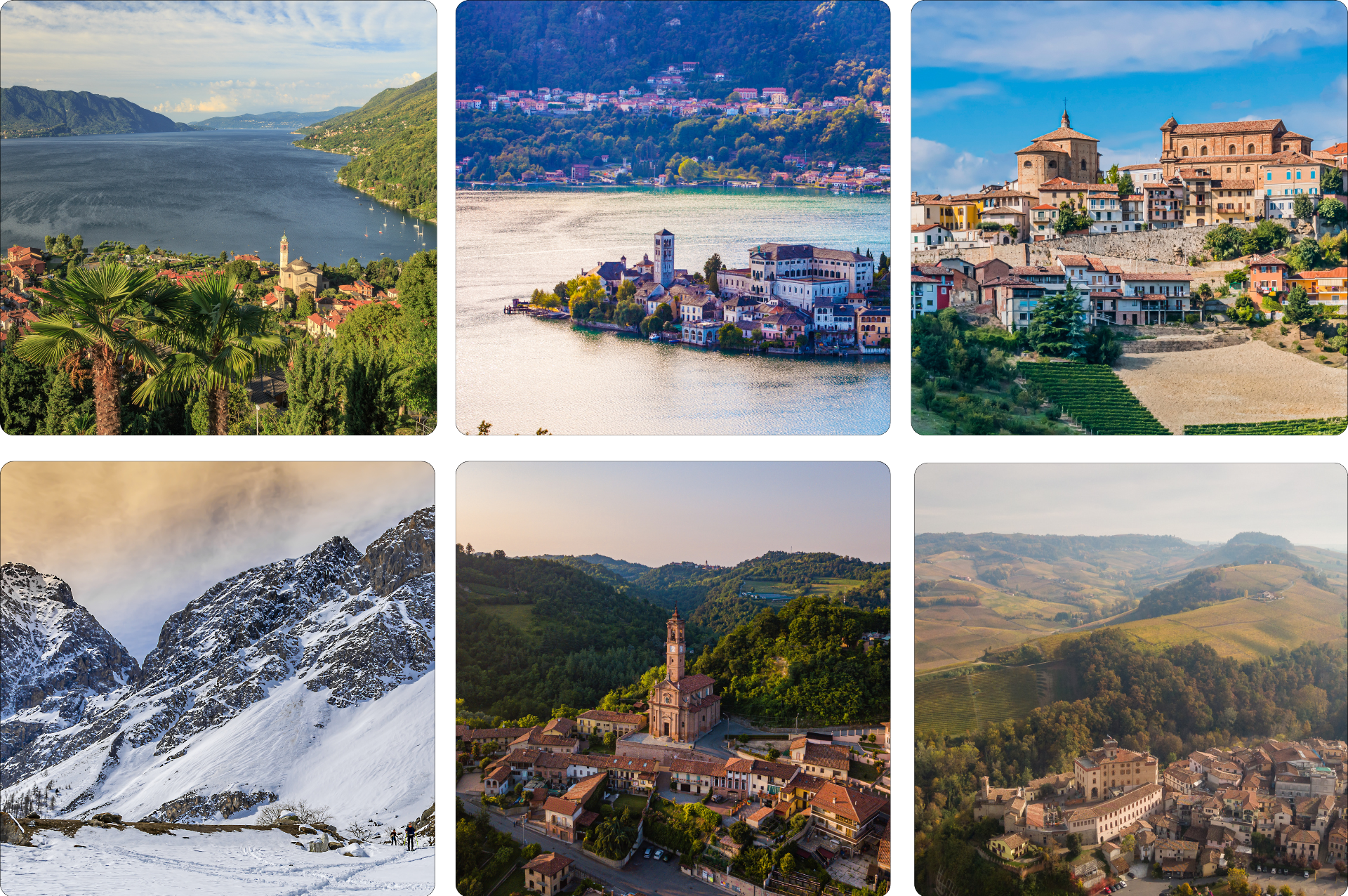Piedmont

History of Piedmont: from Antiquity to the Contemporary Age
Originally populated by Celts and Ligurians, Piedmont was conquered by the Romans in 218 BC, who introduced their language, law and infrastructure, such as roads and cities.
In the Middle Ages Piedmont became the scene of conflicts between local and regional powers. In the 10th century, it came under the influence of the Holy Roman Empire and the Kingdom of Arles. Some cities became important trading centers during the Crusades.
The Savoy dynasty played a fundamental role in Piedmontese history, expanding its territories and leading the process of Italian unification in the 19th century.
In the 20th century, Piedmont was involved in two world wars. Turin emerged as an important industrial centre, particularly in the automotive sector with Fiat. 
Monuments and museums
Piedmont boasts numerous sites of historical and cultural interest, such as the Mole Antonelliana and the National Cinema Museum in Turin, the Royal Palace of Venaria Reale, and the monumental complex of the Santuario di Oropa. Museums such as the Egyptian Museum and the Sabauda Gallery are important centers of culture and art. 

Food and wine
Piedmontese cuisine reflects the meeting between the noble cuisine of the Savoy and the popular peasant cuisine. It is known for dishes such as Bagna càuda, agnolotti, fondue with truffles, as well as fine wines such as Barolo and Barbaresco. The production of hazelnuts and the famous white truffle of Alba are also distinctive elements of regional gastronomy. 
Events and traditions
The region is full of folkloristic events, festivals and celebrations that celebrate its cultural identity, including the Ivrea Carnival with its historic Battle of the Oranges, and numerous food and wine festivals that highlight local products such as truffles, wine and hazelnuts.
Demographic and Geographic Data
With approximately 4.3 million inhabitants distributed across eight provinces, Piedmont covers an area of approximately 25,400 km². The region is characterized by a rich hydrographic and lake heritage, with the Po river crossing it, and by the Alps which offer an impressive mountain landscape, hosting peaks such as Monviso.

